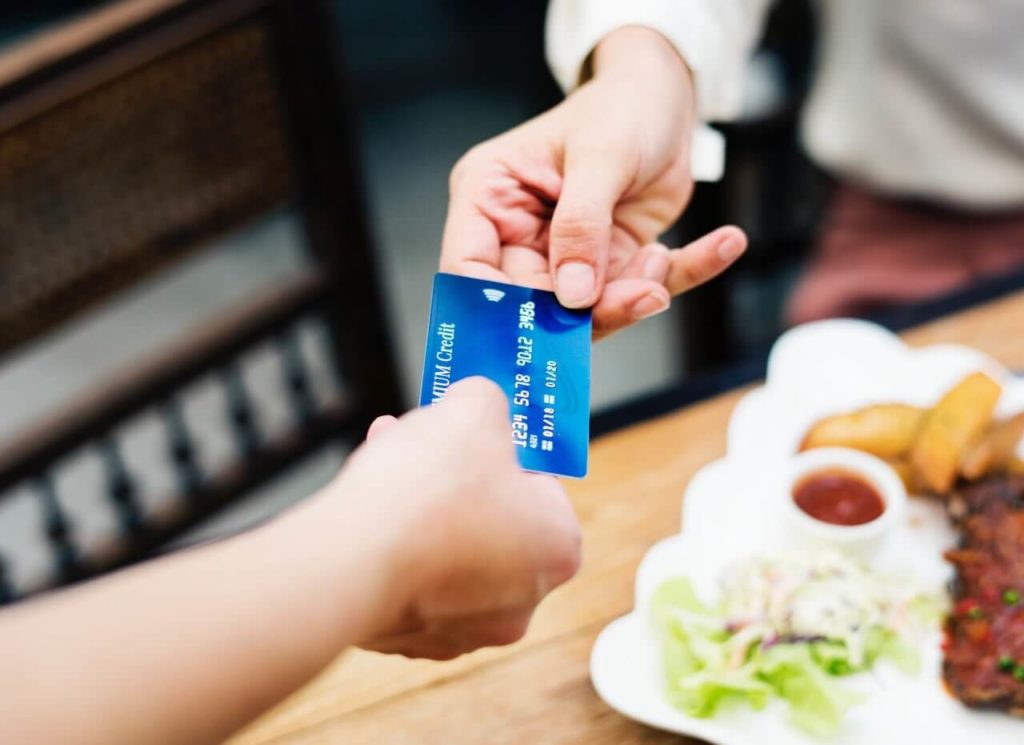In the UK, plastic payment cards are now the most popular way to buy things, by far. Only about 30% of transactions use paper notes and coins, and that figure is expected to fall to as low as 10% in the next 15 years.
In Sweden, which seems well on its way to becoming entirely cashless, only 15% of transactions use notes and coins.
A small number of Irish and British companies have hit the headlines recently by declaring that they have gone 100% cash-free (including Bizimply customer Tuscany Bistro).
But what are the pros and cons for a restaurant, bar, hotel or retail store going completely cashless?
The Advantages of Going Cash-Free in the Hospitality Industry
Here are some of the pros:
- Security; not having cash on the premises reduces the risk of burglary or armed robbery.
- Service; Less time spent fiddling with checking change means more time available to advise and take care of customers.
- Reduced stress for the staff. Contactless or credit card payments make life much easier for bar staff and waiters, especially in busy periods when there might be 20 or 30 customers queuing for counter service. Plus, managers no longer have the stressful and time-consuming chores of balancing the takings against till receipts, recording transactions and banking cash.
- Cashless makes it easier to serve more customers in less time, which means more revenue, especially at “grab-and-go” outlets, while cashless tends to increase spend per head than buying with “real money”. A 2016 Clearscore survey revealed that 72% of consumers admitted that cashless payments made them more likely to impulse spend, while 59% said using cards led them to overspend.
- Cashless payment will eliminate unfair competition by crooks who take money under the counter – and will put money launderers out of business.
Disadvantages of a Cashless Business
And the cons? In America, a number of outlets that went cashless a few years ago have now decided to accept cash again.
- The main reason is that a lot of people do not have bank accounts. They may be in a dwindling minority, but they still represent a substantial market segment, which includes people at both ends of the age spectrum, i.e. kids and seniors, those that have been denied cards because they have a poor credit rating or do not have a fixed abode. In addition, foreign tourists may prefer to pay cash to avoid adverse exchange rates and charges.
- Plus, what do you do if your card provider declines a payment? It’s happened to most of us, and it can be embarrassing.
- There are also some bigger issues at work here. Some people simply do not accept the idea of handing over data about every single transaction they make. Some nationalities are more sensitive about this than others.
- The counter-argument, that cash makes life easy for crooks to launder their ill-gotten gains, is less valid than it once was. Instant cashless payments enable money launderers to move funds quickly around several accounts, covering their tracks.
How Cash-Free Is Viewed Around the World?
As an American chain that reversed its cashless policy recently put it in a statement, “Going cashless had these positive results, but it also had the unintended consequence of excluding those who prefer to pay or can only pay with cash.”
Some would argue that Sweden already demonstrates precisely why it is not a good idea to get rid of cash entirely. Most of the country’s bars, restaurants and stores, taxis, buses and even public toilets do not accept cash. This can make the elderly, the poor, and people with handicaps vulnerable.
For this reason, some legislature in the USA have banned cashless restaurants, or are considering this: legislators regard cashless payments as discriminatory. It remains to be seen if European countries, or the EU itself, takes a similar line.
This is one area where European harmonization has failed spectacularly. Any Swedes on holiday in Germany will be in for a shock. Many restaurants and bars in Germany do not accept plastic and probably never will. In some countries, Cash is (still) King. And those that do often impose a minimum charge.
So, What Should You Do?
Really, it comes down to what your customers will accept.
You do not want to alienate good customers who want to continue paying with cash.
But if your clientele is already happy with cashless, there is much to say for getting rid of notes and coins.
Many employees will welcome it.









